News
Wednesday, March 9, 2022
Dr. Heather Carnahan has been recognized as University Research Professor, the most prestigious award Memorial University gives to faculty for research, consistently high level of scholarship, and graduate supervision and mentoring.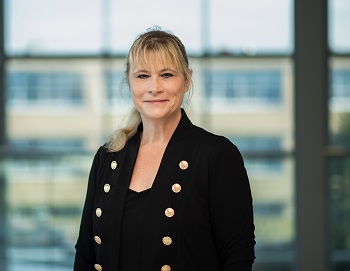
It’s the first time a Marine Institute researcher has received this award.
The 2021 President’s Awards ceremony takes place today at noon and can be viewed online on the Memorial homepage: www.mun.ca.
International expert
Dr. Carnahan has spent more than 30 years as a researcher – studying how people learn, develop and become experts in the fine motor skills needed to be fishermen, mariners and surgeons.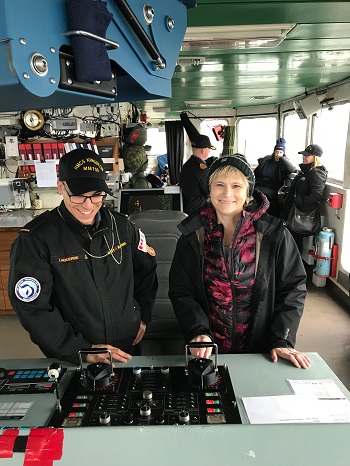
She enjoys the work now as much as when she completed her kinesiology doctorate at the University of Waterloo in 1989.
“I remember a young woman once asked me what’s the thing I’m proudest of in my career and really my answer is that I still love my work and I’m still doing it – that’s my proudest accomplishment.”
An international authority on how people learn to become expert at performing fine motor skills, Dr. Carnahan is the Lockheed Martin Industrial Research Chair in Simulation and Learning at the Marine Institute. She leads a team of graduate students studying the effective design and use of simulators as learning tools for maritime industries.
She is also a School of Maritime Studies professor and leads the Ocean Safety Research Unit, examining the human factors affecting safety and survival.
An MI first
“I’m very proud Dr. Carnahan has received this well-deserved designation of University Research Professor,” said Capt. Fred Anstey, head of MI’s School of Maritime Studies.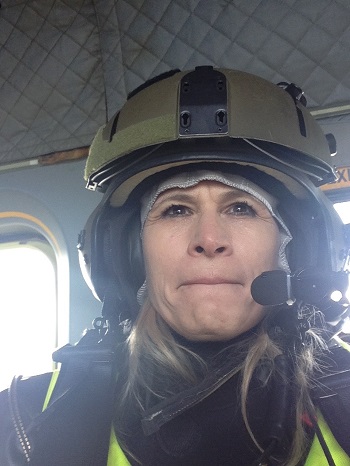
“This award is a first for the Marine Institute. Dr. Carnahan is leading our academic efforts to build graduate programs in the School of Maritime Studies – providing students with unique experiences in collaboration with the marine industry, training future faculty and growing our research capacity in maritime safety and survival.”
The school provides specialized training in designing, operating and managing vessels in the marine transportation sector, which ships more than 90 per cent of the world’s goods and fuel.
Ocean safety research
Dr. Carnahan credits a tour of the Offshore Safety and Survival Centre (OSSC) seven years ago with piquing her interest in the Marine Institute’s ocean safety research.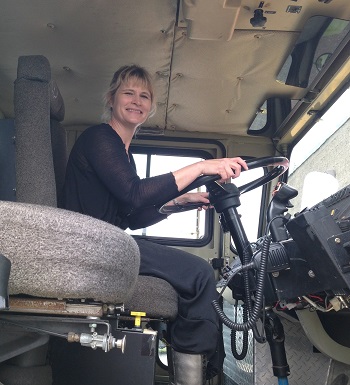
There, she met with Capt. Anstey and Dr. Rob Shea, now vice-president of Memorial (Marine Institute). At the time, Dr. Carnahan was dean of the Faculty of Human Kinetics and Recreation.
“I was just gobsmacked at the quality of the OSSC facilities and the expertise of the staff I met there. I’ll never forget it, we sat in the meeting room and we all had these hot roast beef lunches from the fabulous cafeteria there and we discussed the plan.
“Fred had a vision for bringing graduate programs and increasing the research profile of the School of Maritime Studies, and I had the skills and the background to help reach those goals.”
Scientist-practitioners
These days, the School of Maritime Studies offers three graduate programs – two masters and a doctorate.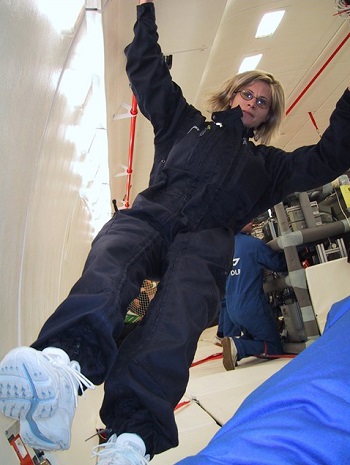
“We have 14 students in the graduate program after launching a little over a year ago. We should have our first master’s graduate before the fall,” said Dr. Carnahan. “We also have two new faculty members and are in the process of hiring two more. So it’s a really exciting time.”
At this stage of her career, she’s playing a larger role in mentorship.
“We still need a cohort of scientists who also understand the marine transportation world. I call them unicorns – those that have the applied expertise as well as solid scientific expertise.
“We’re training scientist-practitioners. So we’re essentially training our own faculty members of the future.”
Interesting projects
The University Research Professor award comes with an unrestricted research grant of $4,000 annually for five years, and Dr. Carnahan plans to use it for interesting projects outside her usual scope of research.
“For example, I’m interested in helping establish a mission for seafarers here in St. John’s with a research unit embedded in it, which would be unique around the world.”
These missions provide supports and services to mariners.
There are more than 1.5 international million mariners worldwide.





